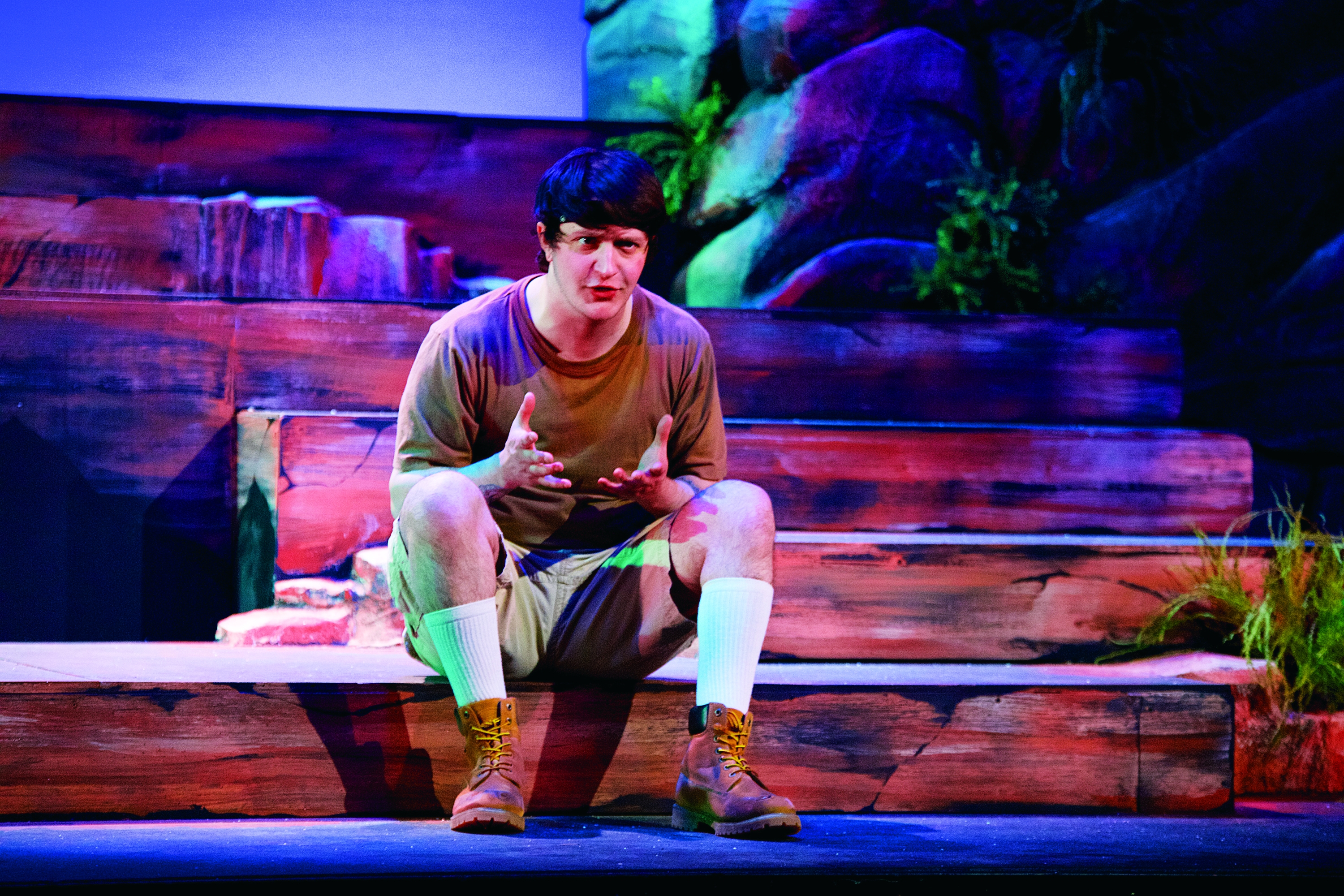For anyone who's ever felt different, cast out or judged by society, they’ve always been able to find a home and comfort in the theater. There’s something unique and special about the camaraderie and the feeling that it doesn’t matter who you are, what you look like or who you love.
Fred Sebulske is the founder of Actors’ Theatre Grand Rapids and a gay man. He said that the feeling of acceptance branches beyond theater and into the arts in general.
“Nobody cares anything about your orientation, among many other things,” he said. “They just care whether you produce the art or not.”
From an early age, children have a place in theater to be themselves and experiment with different ideas of self without fear of judgment, which might explain why so many LGBTQ+ people stay in — and even shape — the arts down the line.
“In any college, you wouldn’t have a theater program without gay kids,” Sebulske said. “Besides the acceptance, there’s the ability to express yourself. And you don’t get that in chemistry.”
While society at large has never been supportive of all people, the theater has consistently stayed a place of openness and acceptance for all. Sebulske remembers being a full-time theater professor at Grand Rapids Community College, and being someone to talk to, and sometimes a mentor, to many of these students.
“That was part of the joy of doing that, was recognizing that there were a lot of kids who didn’t fit in anywhere else, but here they fit,” Sebulske said. “And that’s what I think is crucial about arts in general and theater in particular. There were kids that managed to get through college because (theater) was there, even if they weren’t going to major in theater.”
Kyle Los, executive director of Actors' Theatre Grand rapids, remembers being in college and every movie and pop culture reference he saw with a gay person in it was always about bad relationships, AIDS and death.
“The problem with only those stories being told is that we, as gay individuals, then might assume this is what our future will be,” Los said. “One of the beauties of theater is being able to explore a new potential future and so, at some point, we need those stories to change.”
The mission of Actors’ Theatre is to do just that. The theater serves to push boundaries and create more diversity in what stories are told. As society evolves and many people are more accepting of diverse people, opinions and lifestyles, the theater is also growing to expand upon the wide variety of narratives that can be told.
For instance, Jude Libner, a 21-year-old trans man, was recently in a show at Grand Rapids Community College called Wilderness.
“It felt so good to be trans and go up there and not be ‘the trans character,’” he said.
Los said while theater may tell the same types of stories, the individuals telling the stories are changing.
“It was powerful to watch two individuals who identify as trans perform onstage as themselves,” Los said. “It’s so nice to have new shows that are more mindful about gender pronouns in pieces, so that we can have more flexibility with who’s being cast in a show.”
Libner has been in theater since second grade and said it’s always been a place he’s felt safe, especially going through his transition for the past couple of years.
“It’s going to suck sometimes and it’s going to be hard and you’re just not going to want to wake up all the time, but you do,” Libner said. “And if you have rehearsal at the end of the day, I know for me, that was the one thing I would look forward to. If I could just get through this day, I get to let everything go with people I love.”
At Queer Theatre Kalamazoo, space is being created for even more representation. Laura Kay Henderson started the organization after seeing a need for more LGBTQ+ representation and a safe space for new and emerging artists.
“It’s to normalize the idea of LGBTQ+ individuals and relationships, so we can start really focusing on the humanity behind them versus the identity label,” Kay Henderson said. “But I still think the labels are now getting more traction of their own as something to be proud of, versus something that you might try to hide.”
Even though there are members of the LGBTQ+ community in all theaters, groups like Queer Theatre Kalamazoo and Actors Theatre are working especially hard and intentionally to have an impact on culture and the way people of all identities think about those who are different from them.
“We tell stories to create more empathy as a community,” Los said. “We like to push the envelope. We’re in a situation where we can and it’s important to. Otherwise, there’s no gradual change if someone’s not making more significant change.”





